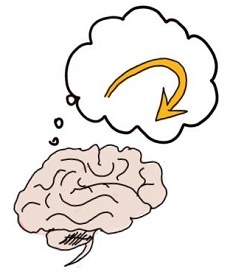e-Learning Ecologies MOOC’s Updates
Fostering Metacognition by means of self-questioning exercise
The development of critical thinking represents one of the most desirable skills for 21st-century citizens. Dealing with real-world problems requires the ability to break an issue into small pieces for tracking an easier-to-apply solution. In the technology area, for instance, such an approach is largely used as the "divide to conquer" technique propitiates promising outcomes. However, the idea of a successful analysis is also about the art of reflection, which introduces the concept of metacognition. Cope and Kalantzis (2017) point the concept also as involving theoretical work where the learners not only immerse themselves in content but can relate to overall explanatory frameworks".
Although the process of developing higher-level thinking overseeing lower-level assumptions might vary according to the different contexts, according to Tanner (2012) the metacognition exercise can be better performed by asking questions divided into Planning (P), Monitoring (M) and Evaluating (E) also in terms of the activity developed. It might include:
- for class session:
q1. What are the main ideas of today's lesson? (P)
q2. Is this subject interesting? Why and why not? (M)
q3. What was todas's class session about? (E)
- for active-learning/homework assignment:
q4. What resources do I need to complete the proposed homework? (P)
q5. What other resources could I be using to get the task completed? (M)
q6. If I were the teacher, what would I identify as strengths and weakness in my work? (E)
- for exams:
q7. How much time do I plan to invest on studying? (P)
q8. Which confusions still remain and how to get them clarified (M)
q9. What questions were not properly answered? (E)
For the overall course, the author mentions common questions to boost the metacognition process, also considering as the same aspects:
q9. What do I most want to learn by taking this course? (M)
q10. In what ways is the teaching in this course supportive/not supportive of my learning? (M)
q11. If I were teach this course, what would I change it? (E)
The power of feedback in this self-question process is also important as long as it's used effectively. (Bromley, 2019). Besides feedback, different metacognitive learning strategies might be seen on this video: https://www.youtube.com/watch?v=HKFOhd5sMEc
Another important point worth mentioning is that one can find that approach also feasible in real-world problems. In areas such as technology, for example, software development agile methodologies use to perform self-evaluation and also peer-feedback aiming to achieve better outcomes and solutions (Rodrigues, Soria and Campo, 2013).
References:
Cope, B., and Kalantzis, M. (2017). Conceptualizing e-learning. In B. Cope and M. Kalantzis (Eds), e-Learning Ecologies. New York: Routledge.
Tanner, K., (2012). Promoting Student Metacognition. CBE—Life Sciences Education, 11(2), pp.113-120.
Bromley, M., (2019). Feedback, metacognition and other interventions. SecEd, 2019(13), pp.21-27.
Rodriguez, G., Soria, Á. and Campo, M., (2013). Virtual Scrum: A teaching aid to introduce undergraduate software engineering students to scrum. Computer Applications in Engineering Education, 23(1), pp.147-156.


